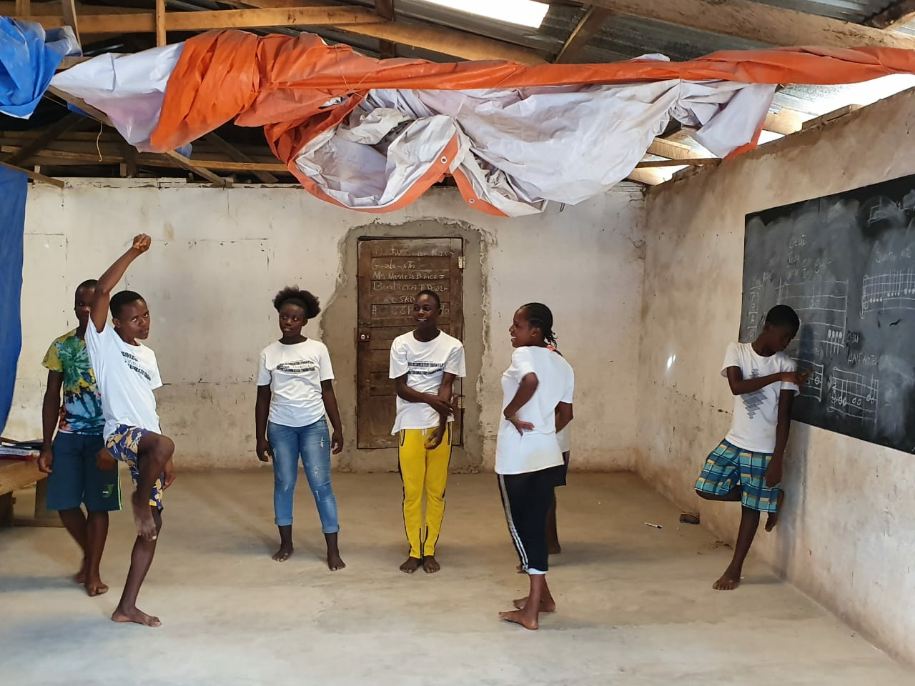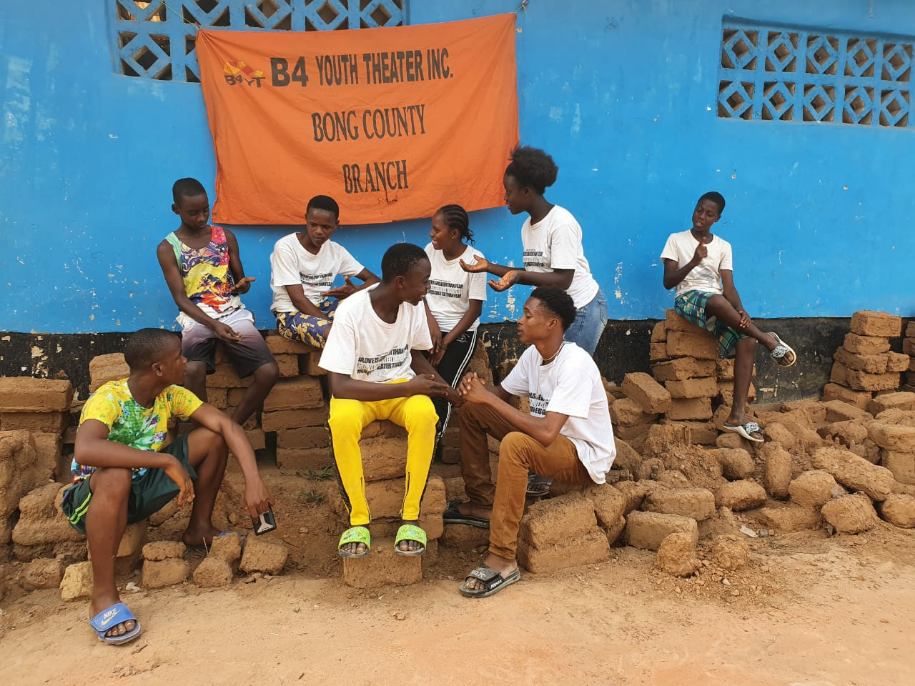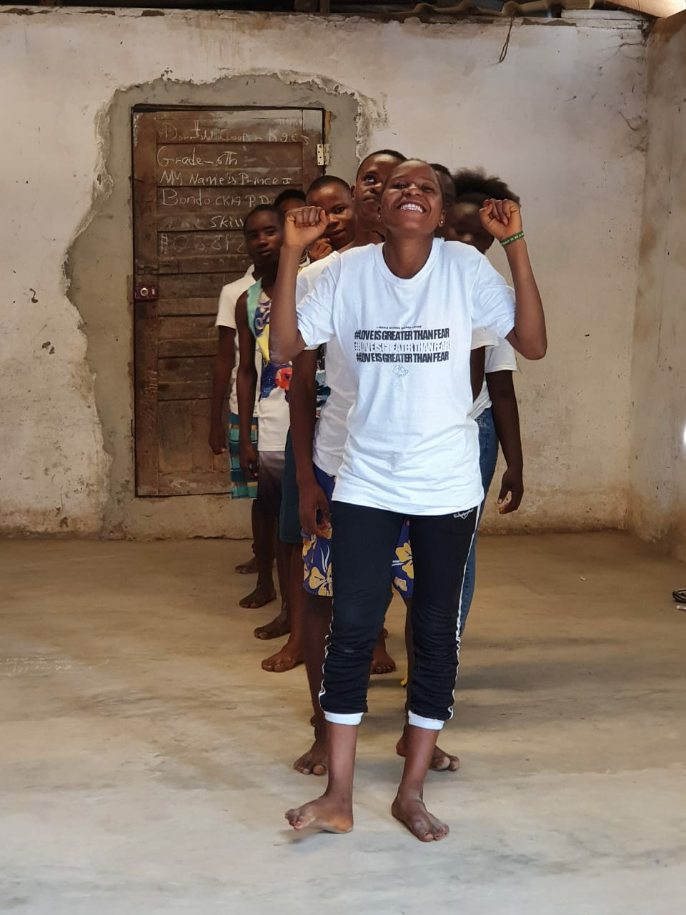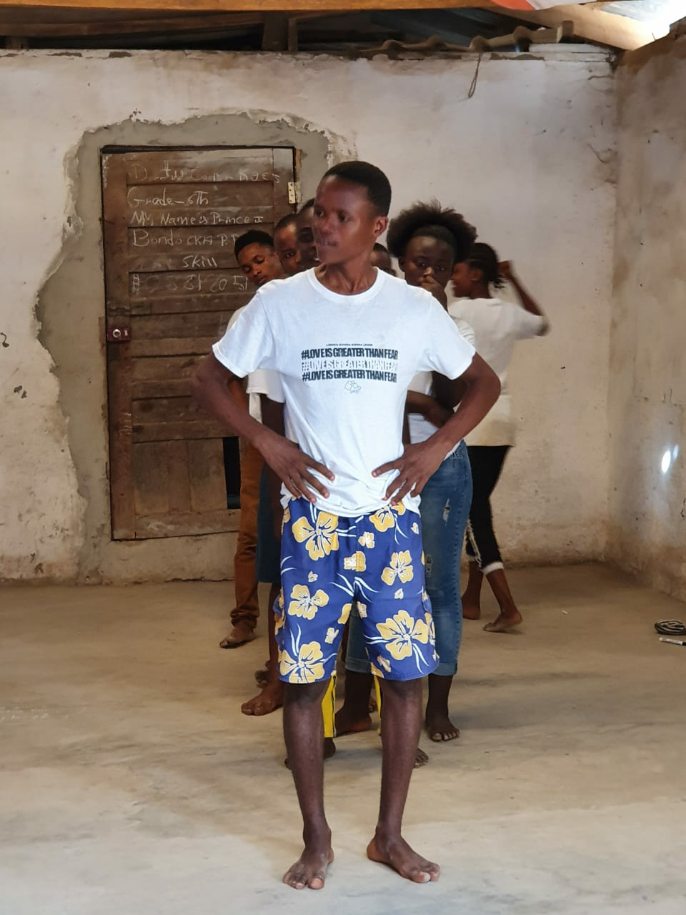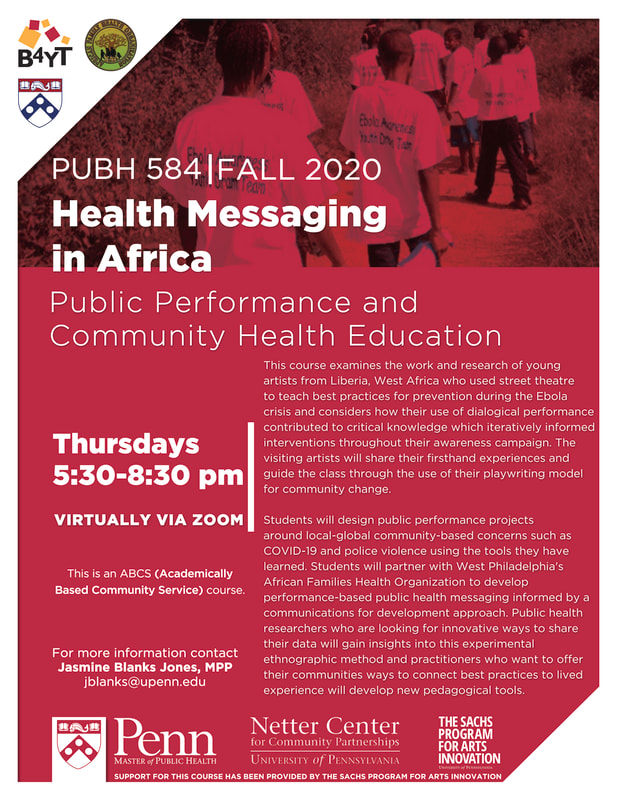CEE | Center for Experimental Ethnography
Menu
CONVERSATIONS
A blog of the Center for Experimental Ethnography
|
Jasmine Blanks Jones has been performing and writing plays since she was a child, long before she founded the B4 Youth Theatre group in Liberia. Now a PhD Candidate in Africana Studies and Education, Culture & Society (and a student with the Center for Experimental Ethnography), Jasmine recalls her high school experiences, when she was part of a large peer group of fellow performers, all seemingly on a path to performance-centered careers. However, on the perilous trek through an educational system that "served different students in different ways" Ms. Blanks Jones veered toward college studies in performance education, while highly talented peers inexplicably ended up on less prestigious pipelines, including incarceration. Blanks Jones decided early on—before her undergraduate studies, even—that in response, she wanted to bring the opportunity and benefit of community theatre to uplift and mentor talent in marginalized communities. Flash-forward through Blanks-Jones undergraduate studies. In 2010, while studying arts education in residential settings at an orphanage school in Liberia, Jasmine took the opportunity to found B4 Youth Theatre in Mt. Barclay in Montserrado County, Liberia. In conducting research with Liberian communities, Blanks-Jones has had to negotiate a multitude of roles and navigate the social assumptions surrounding her identity: as a scholar, a light-skinned black woman, an American, a performer, a media maker, a college-educated professional. With B4 Youth now 10 years old, hosting programs in five counties of Liberia, over 400 youth across the nation are graduates of the signature program, “Vacation School for the Arts”. This year, it is being offered virtually for the first time as the Global Youth Arts Collaborative, hosting community conversations about misinformation amidst pandemics. These 400 students have written, acted in, and produced theater pieces that are deeply engaged in community issues, under the supervision of Liberian arts instructors (themselves graduates of the program). Working with arts instructors, students in B4 Youth programs have demonstrated an ability to respond to challenging and pressing crisis using the voices, hearts, and ideas of the youth, who (Jasmine notes) can often speak better to society about society than adults themselves. Most notably, students in B4 Youth projects have received national and international attention for using theatre to respond to misinformation that was circulating during the Ebola crisis, with students working together to write and produce plays in public spaces, drawing large crowds in markets, streets, and other highly trafficked locations where they have both spread vitally important messages for public health, and given students the confidence and experience necessary to practice public speaking on a broad scale. This latter capacity—public speaking—is one that is highly valued in Liberian society, especially by parents who consider it a prerequisite for becoming a “Big Person” within the community. These once-participants and now-arts instructors in B4 Youth work to identify areas, communities, and crisis that can benefit from community-based theatre activism. And the benefits to this work are both tangible and intangible, aside from training youth in public speaking, the program offers youth the important opportunity to socialize in public in ways that their parents deem “safe” and “less risky”. As opposed to being explicitly anti-police, many Liberian families Jasmine works with could be considered anti-police-attention. Without the money to encourage police to turn a blind eye, families in poorer communities invest their energy in instructing children in how to avoid notice by authorities more generally. One particular behavior that parents harp on is the mode of teenage socializing they call “walking about”, a way that youths, left on their own, tend to wander through public streets. According to their parents, this aimless habitation of public space creates the potential for generic small-scale troublemaking, and more troublingly, opens youth to unwanted attention from the authorities. This is where the goals of PGS, youth interest in group socializing, and parent’s values have been able to click into step with one another. What matters deeply to Jasmine is not simply the success of these theatre projects on a national scale, but rather the local perceived benefits of the program. Mattering, in this sense, requires that students, parents, arts instructors, and communities find value and benefit in the programs. “The principle benefit, aside from more tangible ones of getting youth away from “walking about” is that parents see it as educative. A lot of parents will say ‘this child was a weak student, would be a weak student on their own, but now you if you go into the house you will see them writing a script, reading a play.’ Maybe they were shy, or not great at public speaking, but this changes that, and public speaking is truly highly valued in Liberian society, to speak in front of a crowd, so this program offers them an opportunity to build that. Parents have said “now they can talk in front of their friends, even hundreds of thousands of people’.
For students, the project not only builds skills, but the opportunity for collective joy, to voice their opinions, and to meet other young people in spaces sanctioned by adults. Of this Jasmine has said: “Some parents have come to me saying, my child refuses to do chores, to work at the house, unleess I promise him or her she can go to the community theatre in the evening. They use emotive words to talk to the fellow community workers and theatre program leaders about their children’s participation: they say words like “love”----I “love” this program." Even during this time of physical distancing, the youth and students of B4 Youth Theatre are still able to use this opportunity to connect, grow, and challenge the status quo of marginalized youth in Liberia. Interested in learning more about the B4 Youth Theatre Global Youth Arts Collaborative? You can fill out an application here . Jasmine Blanks Jones will also be teaching an academically-based community service course "Health Messaging in Africa" at Penn in Fall 2020. Flyer below. .
1 Comment
|
Contact Us // 438 PENN MUSEUm // [email protected]
© 2018 The Trustees of the University of Pennsylvania
